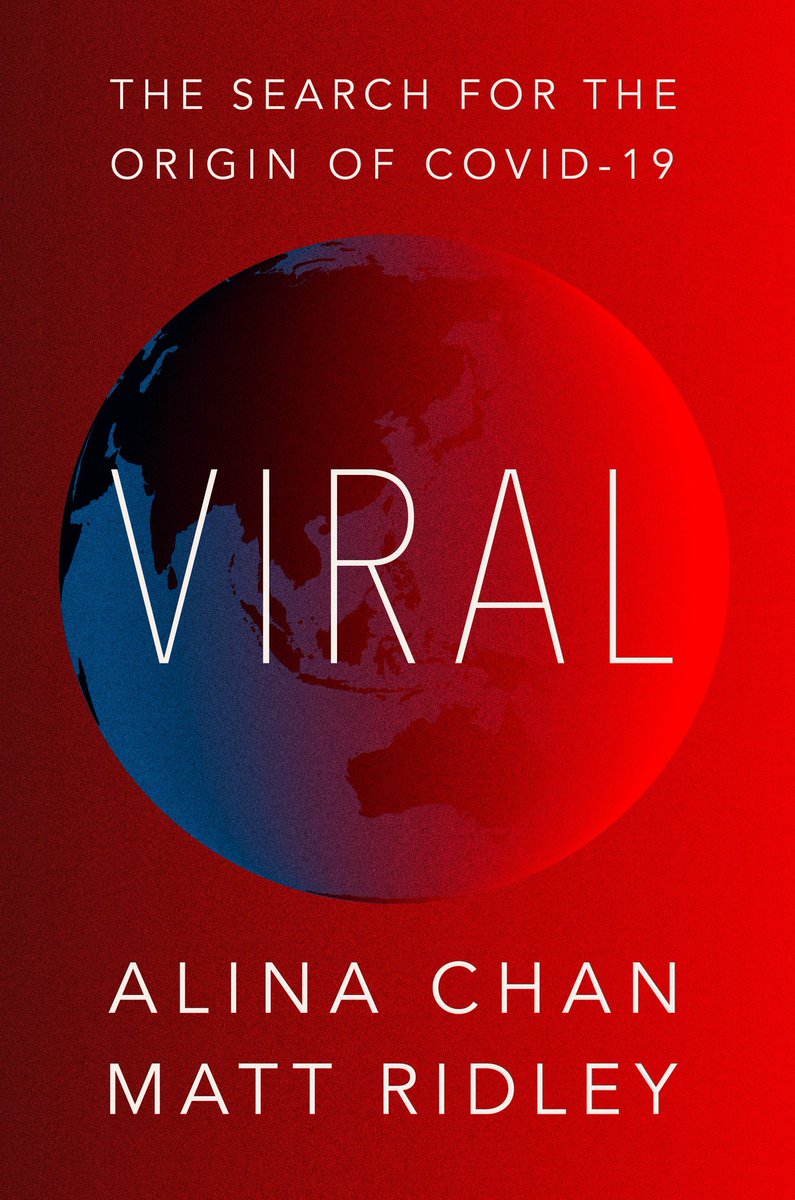
I'm very happy to share that I will be co-authoring a book on the #OriginsOfCovid with @mattwridley - coming this November!
When Matt asked me to collaborate on Viral: The Search for the Origin of COVID-19, I knew that we had to write this book.
When Matt asked me to collaborate on Viral: The Search for the Origin of COVID-19, I knew that we had to write this book.
https://twitter.com/harperbooks/status/1402370959772901378
I've done an insane amount of tweeting this past year (more than 10,000 tweets) and co-authored 2 articles with Matt in the @WSJ and @Telegraph
But, a friend told me that these would all be lost & scattered with time.
If you write a book (a very good one), it can become canon.
But, a friend told me that these would all be lost & scattered with time.
If you write a book (a very good one), it can become canon.
I know that there will be possibly dozens of books on the #OriginsOfCovid - many on the politics & management of the pandemic in different countries (especially the US and China), and several very focused on persuading us that this virus definitely has natural origins. 

So, it was an inevitable decision for a towering figure in science writing @mattwridley and a scientist-turned-detective (me) to write the book telling the stories of key characters and our journey with them piecing together clues to understand the origin of COVID-19.
I don't know how to pre-order. But I'll post it as soon as it becomes available!
US cover (red) versus UK cover (white).
The book is about the search for the origin and many of the stories and pieces of information unearthed along the way. It is not about definitively ruling out any hypothesis except maybe #PopsicleOrigins or #MultipleOrigins

The book is about the search for the origin and many of the stories and pieces of information unearthed along the way. It is not about definitively ruling out any hypothesis except maybe #PopsicleOrigins or #MultipleOrigins


• • •
Missing some Tweet in this thread? You can try to
force a refresh



